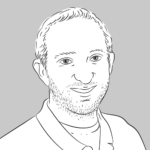
“Technology and the Patient Consumer: Understanding Medical Choice and Care, 1900-2020” was the theme of a virtual workshop held jointly by the McGill Department of Social Studies of Medicine (SSOM) together with the Jewish General Hospital (JGH) on May 18-19. The event was co-organized by Dr. Rachel Elder and Dr. Thomas Schlich on the SSOM side and Dr. Lawrence Rosenberg at the JGH.
The event brought together historians and social scientists from universities across North America and Europe. Whether speaking of surgical tools, consumer goods, pharmaceutical products, or new means of accessing and disseminating information, speakers highlighted how technology has shaped healthcare like never before. The COVID-19 pandemic, for instance, has made this abundantly clear by triggering an abrupt rise in medical services administered via digital platforms.
From suntanning products to T-shirts commemorating the victims of police violence, concerns about health and disease have been co-opted by industries looking to promote certain consumer goods. Meanwhile, public demand for ‘cutting-edge’ technologies, such as minimally invasive surgeries, has pushed healthcare providers to adopt new treatment options to meet patient expectations. At the same time, in many medical contexts, patients’ personal information is now being collected, sold, and bought. These are just a few topics of the research presented at the workshop. Their wide scope demonstrates that technology, in various forms, impacts almost every facet of patients’ interactions with the medical system.
Technology also fundamentally transforms what it means to be a patient. As some historians have argued, the term ‘patient-consumer,’ rather than ‘patient,’ may in many cases better reflect the way in which people now experience medical care. Patient-consumers are well informed about their medical conditions, and aware of their treatment options. They play an important role in their own healthcare management. They advocate for themselves even if this involves seeking solutions beyond the boundaries of conventional modern medicine. The patient-consumer is not the passive recipient of medical services, but an active member of a multi-disciplinary, patient-centred team.
This vision, of course, is not without controversy. Physicians argue that most patients lack the expertise to appropriately assess their options, and thus cannot realistically act as informed ‘consumers.’ They are concerned that by abdicating their traditional role and embracing that of the consumer, patients also risk waiving such protection as the right to confidentiality. There are also critiques of capitalist influence and the corporatization of care.
Also, in discussing the patient role and the exact function of technology in mediating the relationship between patients and healthcare providers, it is crucial to consider the resources that are available to patients. Not everyone has the possibility of making a well-informed choice and contributing actively to their care. As the workshop discussions stressed, such choices depend to a large extent on sociocultural privilege. To play an active role, patients need to know that this is possible. They also need to have the capabilities of taking advantage of the possibility to move fluidly between different roles. Investigating the various roles patients can have in relation to medical technologies – from consumer, to promoter, to advocate, to informant – may thus help understand potential options available within healthcare encounters.
Many questions remain to be answered: To what extent do patients themselves endorse the roles of consumer, user, or activist? How are these identities shaped by various technologies? One thing is sure: As medical technologies and healthcare delivery continue to evolve, topics like these are becoming ever more relevant to understanding and improving the patient experience. Further research into these processes is needed.

